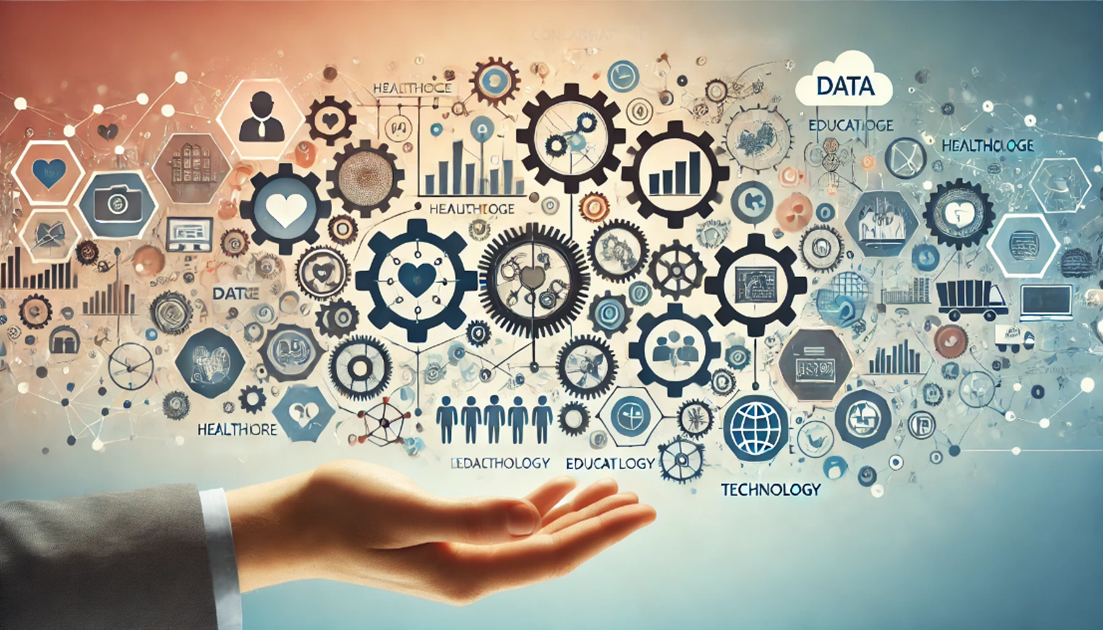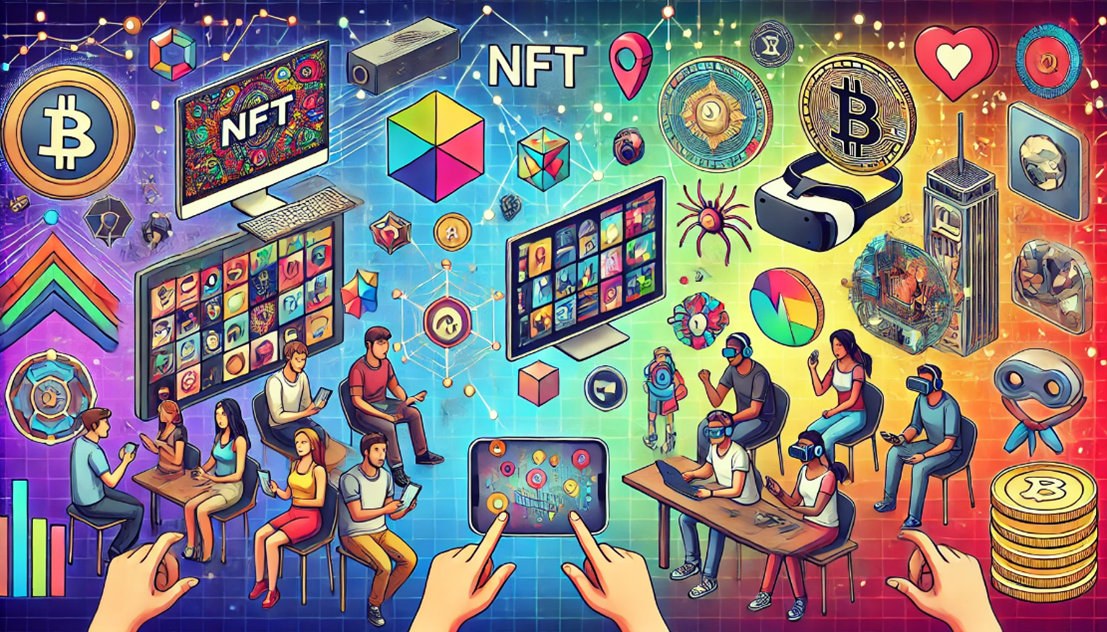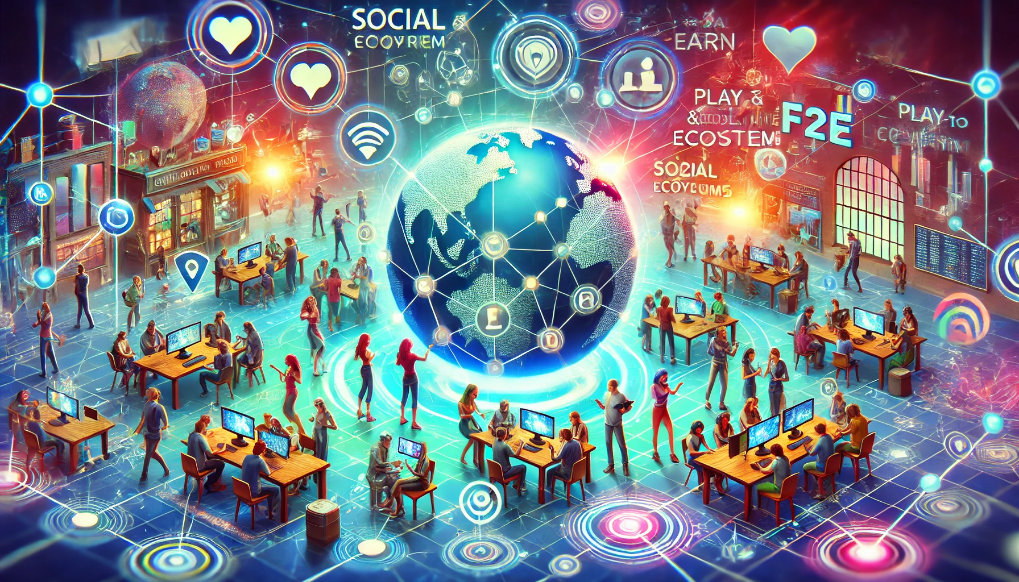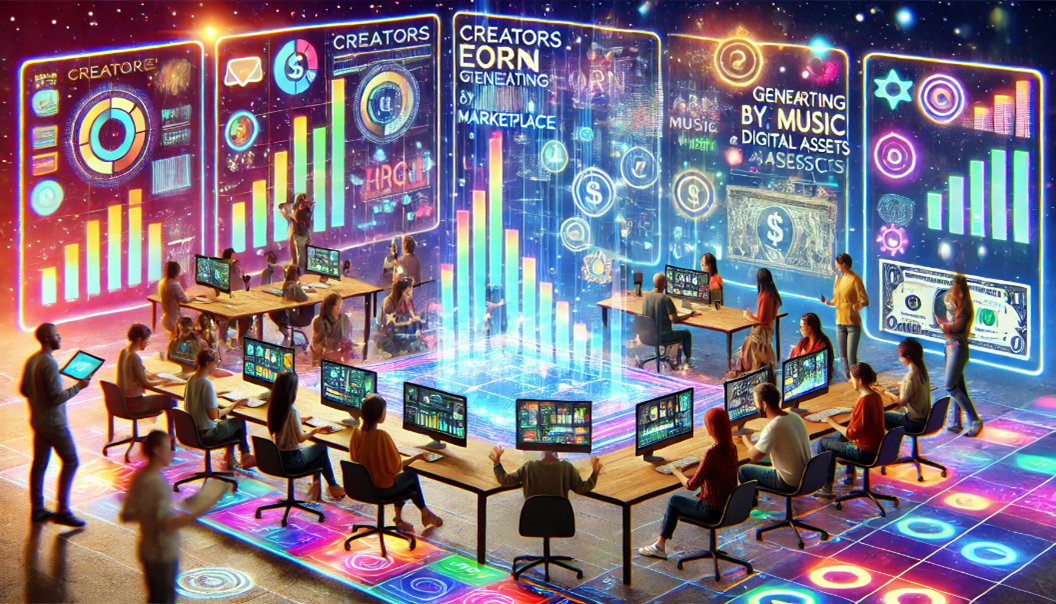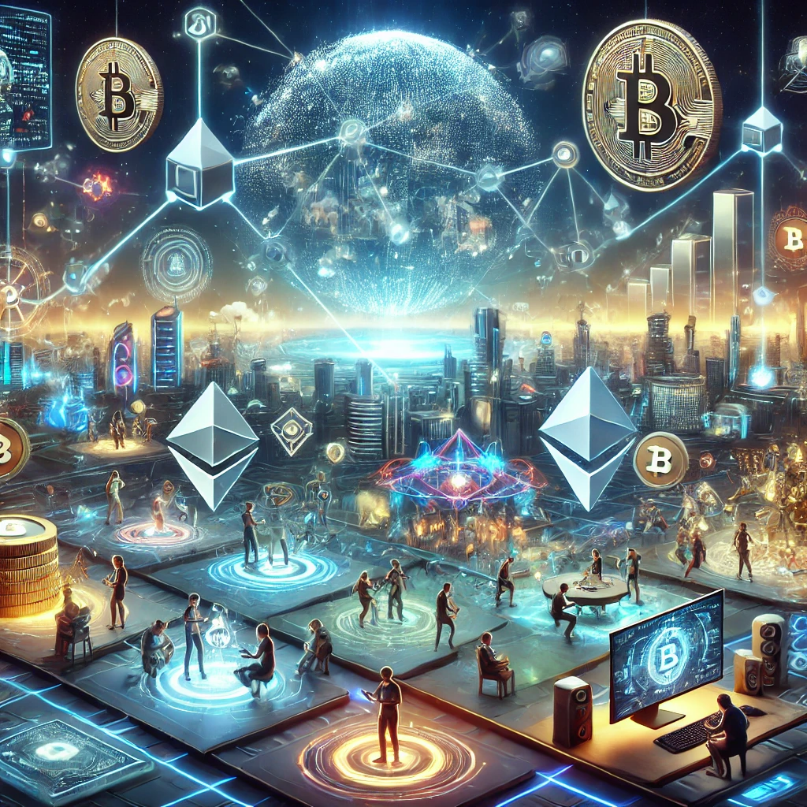DAOs (Decentralized Autonomous Organizations) for game governance

DAOs (Decentralized Autonomous Organizations) for game governance
by Maximilian 02:11pm Jan 09, 2025
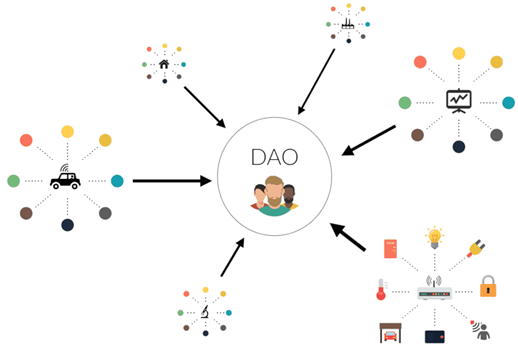
DAOs (Decentralized Autonomous Organizations) have emerged as a key component in the governance of Play-to-Earn (P2E) games and other blockchain-based platforms. They allow for community-driven decision-making, giving players and stakeholders a voice in how the game or platform evolves. Here’s how DAOs work in the context of game governance:
What is a DAO?
A DAO is an organization that is run through smart contracts on a blockchain, with decisions made by its members rather than a central authority. Members participate in the decision-making process through voting, typically using tokens or other digital assets. DAOs are designed to be transparent, autonomous, and decentralized, ensuring that no single entity has full control,

DAOs in Game Governance
In P2E games, DAOs are used to give players, token holders, and other stakeholders a say in the game’s development, policies, and economy. Here’s how DAOs are integrated into game governance:
1. Voting on Game Development
Proposals: Community members can submit proposals for changes to the game, such as new features, rule adjustments, or content additions.
Voting: Token holders or participants in the DAO vote on these proposals. The voting power is typically determined by the number of tokens a person holds, with larger token holders having more influence.
Execution: Once a proposal passes, the smart contract automatically implements the changes, ensuring that the process is decentralized and transparent.
2. Economic Decisions
In-Game Economy: DAOs can manage the in-game economy, including decisions on how rewards are distributed, how assets are priced, or how inflation is controlled within the game.
Token Distribution: Players may have a say in how tokens are allocated, including how much is distributed to developers, investors, or community members. DAOs can also determine how to handle rewards or the distribution of new NFTs.
Revenue Sharing: Some DAOs govern how revenue generated by the game is used. For example, a DAO might vote on how to reinvest profits into the game, reward the community, or distribute profits to token holders.
3. Governance of Game Assets (NFTs, Land, etc.)
Ownership and Access Control: In some games, players can participate in decisions about virtual land, NFTs, and other assets. A DAO could vote on land development, special NFT drops, or the introduction of new assets to the game.
Asset Distribution: DAOs may decide how rare assets are distributed to players, or how the game’s virtual marketplace is structured, ensuring a fair and transparent system.
4. Community Engagement and Moderation
Moderation: DAOs can also be used for community moderation, allowing players to vote on whether to ban or penalize toxic players or resolve disputes within the community.
Community Initiatives: DAOs help foster community-driven initiatives, such as creating new game modes, holding tournaments, or organizing in-game events.
5. Transparency and Accountability
Auditability: All DAO decisions and transactions are recorded on the blockchain, providing a transparent and immutable record of how the game is governed.This helps build trust among players, as they can see exactly how decisions are made.
Decentralized Power: Unlike traditional games, where the developer has full control over updates and changes, DAOs decentralize this power, ensuring that no single entity can make unilateral decisions that affect the community.
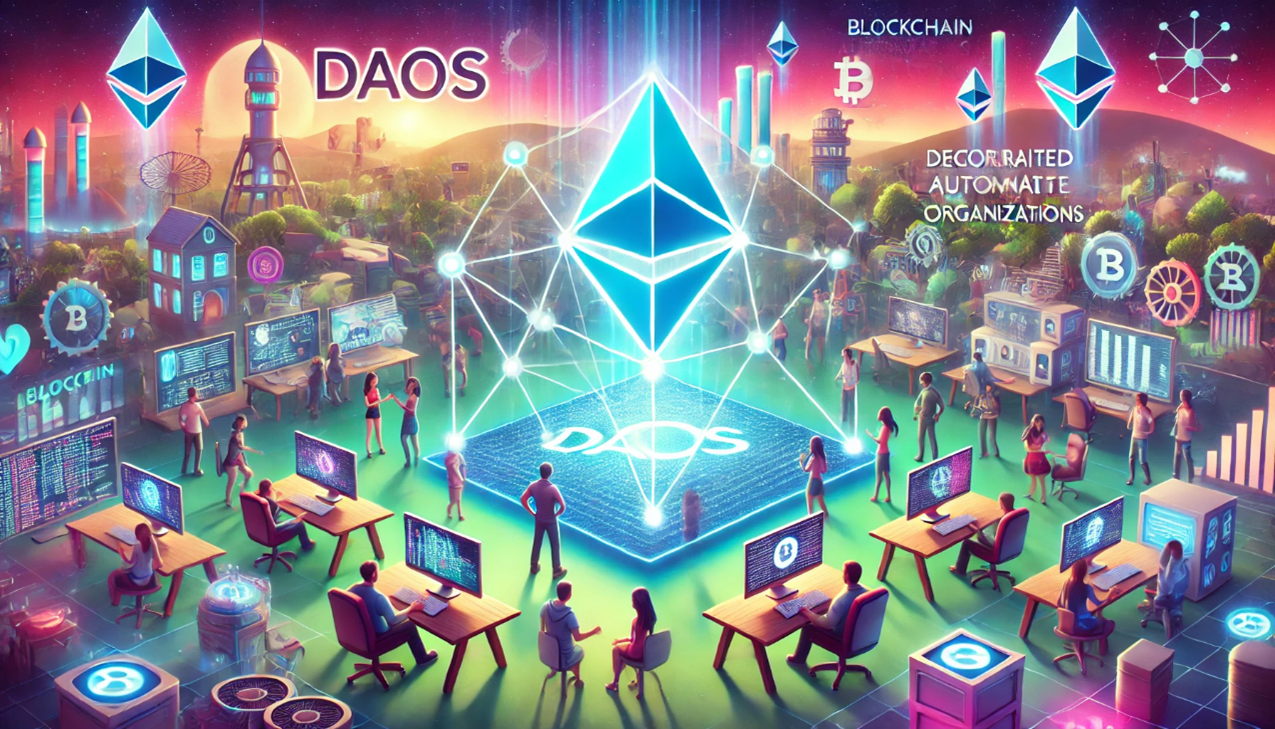
Benefits of DAOs for Game Governance
Community Control: DAOs empower players and community members to have a direct impact on the game’s development, making it more player-centric.
Increased Engagement: By giving players a stake in the game’s future, DAOs encourage greater participation and long-term engagement.
Fairness: The decentralized nature of DAOs can reduce the potential for manipulation by developers or large stakeholders, leading to a fairer, more balanced gaming experience.
Innovation: Since DAOs allow anyone to submit proposals, they can foster innovation within the community. New ideas and features can be tested and voted on by the players, creating a more dynamic and evolving game environment.
Challenges of DAOs in Game Governance
Complexity: Setting up and maintaining a DAO requires technical expertise, and the process of voting on proposals can be slow and cumbersome.
Centralization Risk: While DAOs are designed to be decentralized, the governance model can still be influenced by a few large token holders or whales, leading to a potential concentration of power.
Voter Apathy: In some cases, players may not be actively engaged in governance, leading to low voter turnout or apathy toward important decisions.
Regulatory Concerns: DAOs, like other blockchain-based projects, may face legal challenges, especially in terms of financial regulations or intellectual property rights.
Examples of DAOs in Games
Axie Infinity: Axie Infinity’s community is governed by a DAO where players vote on proposals related to game features, the economy, and token distribution.
Decentraland: The Decentraland DAO allows players to vote on changes to the virtual world, such as how land is developed and how funds are used within the ecosystem.
The Sandbox: The Sandbox has a DAO that governs the distribution of the game’s native token, LAND (virtual real estate), and other key decisions affecting the virtual world.
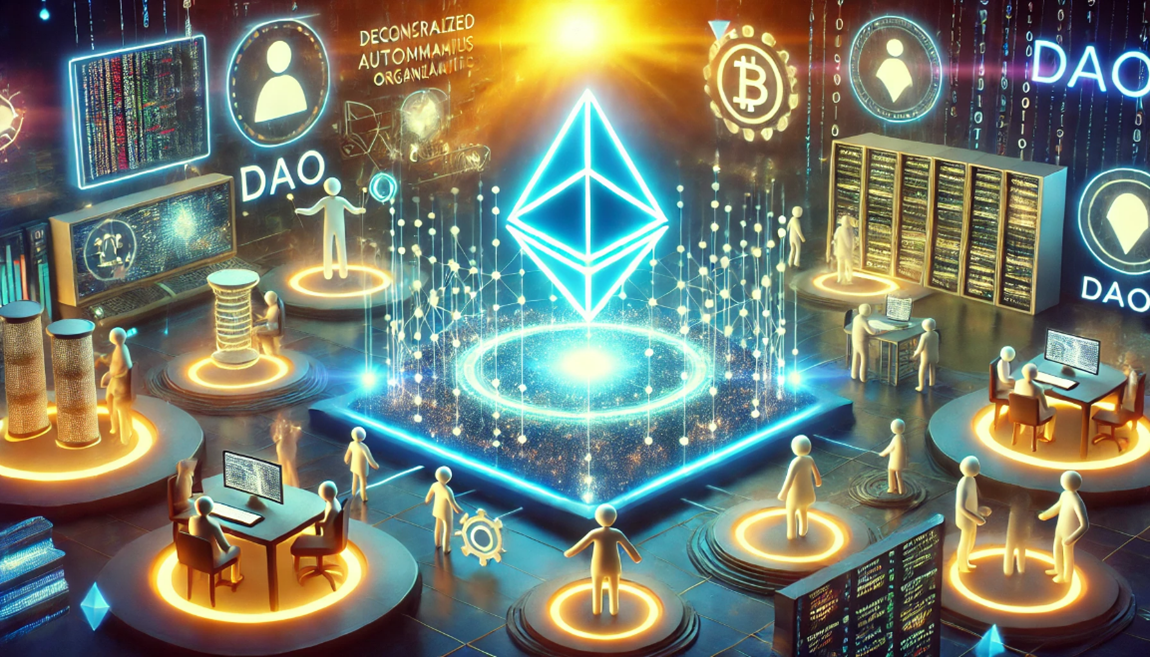
Conclusion
DAOs are transforming game governance by decentralizing control and allowing players to actively shape the direction of the game. This system enhances player engagement, promotes fairness, and encourages innovation. However, for DAOs to succeed in game governance, it is essential to address challenges like voter apathy and the potential centralization of power. As the gaming and blockchain industries continue to evolve, DAOs will likely play an increasingly important role in creating community-driven, player-focused gaming experiences.


